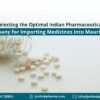Given the magnitude of the COVID pandemic and its spread across the world, it seems to be almost certain by now how a post-coronavirus world will observe an altogether different ordering of the worldwide economic and political system of commitments and preferences.
If the Great Recession of 2008 united numerous nations in guaranteeing collective banking and financial sector reforms – to save an infectious spread in the financial sector – the 2020 worldwide pandemic shall ideally make the global commitments and needs of most nations more skewed towards guaranteeing more prominent public health security for its citizenry.
Up until this point, as the crisis is still unfolding, many critical multilateral arrangements in place – regardless of whether the G20 or G7 – have played a limited role in introducing a unified front or in reassuring and giving effective measures of relief to most affected nations.
The G2 ‘Great Powers Club’ too for example US and China, have confronted criticism for showing weak global leadership, as the pandemic has infected one country after another.
But what about India?
In comparison to other countries, say, China, Eurozone, or the United States, India has been both fortunate and cautious, in preventing the infectious spread of the virus in its domestic territory with early restrictions on mobility from different countries, seeking contact tracing, and declaring a lockdown early. It has likewise taken larger efforts as of late to send across medical supplies and drugs to different countries in need.
Assuming that the country takes all the important precautions ahead and keeps the infection curve trajectory more flattened, India has a decent opportunity to come out on the better side of the crisis. What’s more, that offers India a window of opportunity in this emergency.
So, how would India be able to utilize this crisis as an opportunity to reorder its own worldwide commitments and rise as a significant actor to permit more nations to become interdependent and associate with a huge developing market?
In a post-coronavirus global order, India’s similar favorable position can depend intensely on becoming a significant provider for global public goods and services, given how the demand for these are probably going to go up in years to come.
Here, we talk about the prospects in healthcare as a case in point.
India’s current preferred position of large-scale pharmaceutical production enables it to significantly leverage its soft power by investing in the outward growth of the healthcare sectors of different nations by:
- Ramping up exports in drugs;
- Turning into a preferred medical tourist destination for those looking for affordable treatment in quality secondary/tertiary health services,
- Seek after medical diplomacy by offering medical training and technical expertise to many other developing nations whose healthcare systems are a lot worse than India.
Boosting pharma exports
As per the Indian Brand Equity Foundation (IBEF), pharmaceutical exports of India from the financial year 2012 to 2019 have consistently grown from $10 billion to $19 billion.
According to estimates, India represents about 10% of the world’s pharmaceutical production by volume and 1.5% by value. The industry is the world’s biggest supplier of generic drugs and controls around 18% of the worldwide market. It is additionally a leading producer of vaccines on the planet and caters to about 50% of worldwide vaccine demands.
This is because of the effective high demand for Indian drugs in light of cheaper pricing, making these more reasonable to both developing and developed nations.
Indeed, even with the breakout of the COVID-19 pandemic, many private Indian pharma manufacturers expressed their desire to expand their supply of required medications to these nations.
Not only states, however public health non-state actors and many international NGOs have been utilizing generic Indian drugs for affordable treatment in countries within Africa, parts of Latin America over the last decade.
Empowering medical tourism in India
Over the last few years, especially since 2014, the number of people coming to India for medical treatment has grown yearly at about 55%. As per the Ministry of Tourism, the medical tourism space was estimated at around $3 billion (US$) in 2015 and at $9 billion in 2020.
The Indian government has additionally advertised India as a superior medical tourist destination by giving fast-track medical visas and rapid airport clearances for those visiting as medical tourists. Although, most vital players in the medical tourism space are those in the private sector yet obviously it is clear that this is a space for the Indian government to develop significantly more capacity in years ahead.
Pursue medical diplomacy
In spite of India’s colossal steps in medical-value tourism and in the growth of pharmaceutical exports, it actually has a long road ahead to use its potential at a worldwide level. India’s own public-healthcare system appears in poor shape (excepting some of the states in the Southern and North-Eastern part of the nation). It has one of the most minimal doctor-to-population ratios in the world. The gains accrued have to a great extent been due to the asymmetric, privatized nature of the healthcare system in India-which has permitted the private sector to make inroads to other local/and global accomplices (in West Asia).
To project itself as a nation practicing medical diplomacy through soft-power, if there is one nation from which the Indian state can especially learn, is Cuba.
Regardless of being a small nation with a much lower per-capita income, Cuba’s public healthcare system is truly outstanding in the world. The Cuban State has polished a humanitarian goal of medical-internalization as a major aspect of its diplomatic mission and acquired a more extensive reputation and praise by offering doctors and medicines at times of health-emergencies in many nations in need. Its medical teams -sent in the state, have likewise maintained a longer presence in health emergencies prone areas around the globe with around 50000 doctors stationed abroad by 2018. In the recent past too, Cuba sent the biggest group of medical doctors to West Africa during the Ebola epidemic.
The communist state additionally embraced a diplomatic strategy of making bilateral agreements with countries like Argentina and Venezuela, to pay for offered medical services, while likewise guaranteeing medical aid to nations like Algeria and Haiti in times of war and different crises. Thus, this arrangement by the year 2018 brought about $11 billion in (medical) exports from Cuba while additionally financing its helpful efforts.
In a post-coronavirus world, healthcare would rise as a significant point of attention for some countries over the world. What’s more, in a reordered version of globalization, worldwide public goods like healthcare security will attract countries to look for partners with a more comparative advantage in providing for medical expertise for treatment, essential medications; and in-state capacity-building for medical-aid and service to different countries (as needed).
India can possibly do tremendously well in the first two of these areas (given its similar advantages in pharma-based exports and in medical tourism), for the third, in embedding state-diplomacy with medical-diplomacy and putting resources into its outreach, there should be a radical (re)orientation in our worldwide (diplomatic) priorities and duties, starting from territorial to international channels.
We at JoinHub Pharma – the leading pharmaceutical company in India manufacture high-quality, affordable branded and generic medicines. Contact us to discuss more pharma products.
Call: +91 9979382527
Mail us at [email protected]
Website: https://joinhubpharma.com










